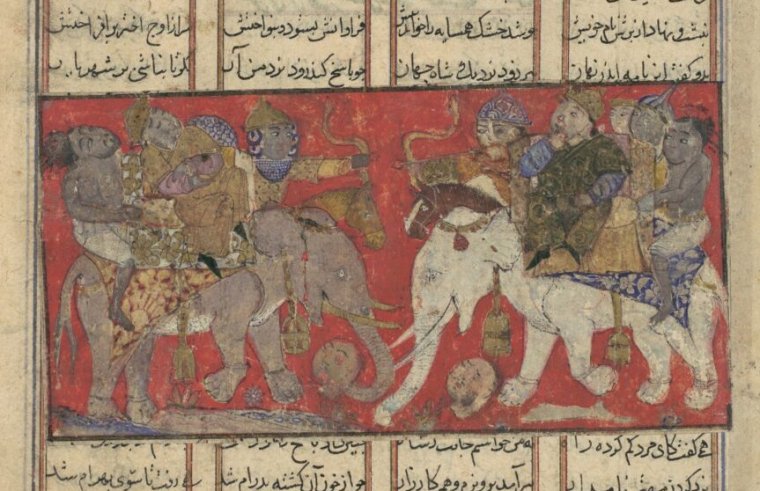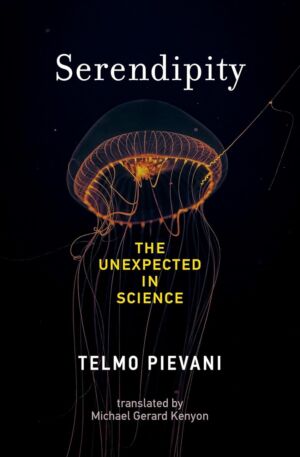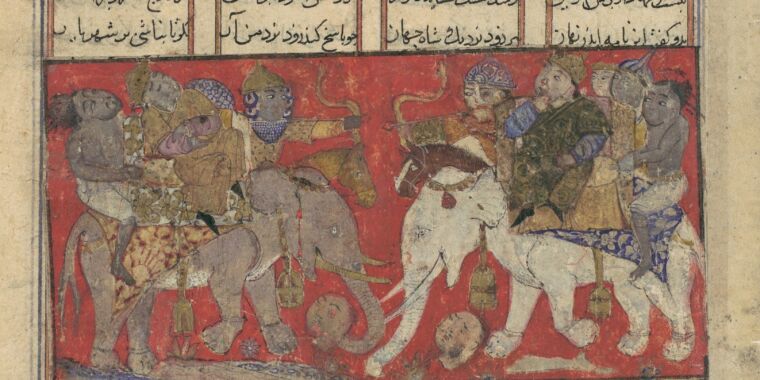
The three princes of Sarandib, an old Persian name for Sri Lanka, are banished by their father, the king. They are good boys, but he wants them to experience the wide world and its peoples and be tested by them before they take over the kingdom. They meet a camel driver who has lost his camel and tell him that they have seen it, although they have not, and prove it by describing three remarkable features of the animal: it is blind in one eye, it has a missing tooth, and it has a lame leg.
After some antics, the camel is found and the princes are right. How could they have known? They used their keen observational skills to notice unusual things and their ingenuity to interpret those observations and reveal a truth that was not immediately apparent.
It is a very old story, sometimes with an elephant or a horse instead of a camel. But this is the version that Amir Khusrau wrote in Delhi in 1301 in his poem The Eight Stories of Paradiseand this is the version that a certain Christopher the Armenian clumsily translated into the Venetian novel The Three Princes of Serendippublished in 1557; a publication that indirectly brought the word “serendipity” into the English language.
In no version of the story do the princes accidentally stumble upon something important that they weren’t looking for, or find something they were looking for in a roundabout, unexpected way, or make a valuable discovery based on a false belief or misunderstanding. Coincidence, luck, and misfortune, fortunate or otherwise, play no part in their story. Instead, the trio uses their astute observations as fodder for their captivating reasoning. Their greatest talent is their ability to spot surprising, unexpected things and use their observations to formulate hypotheses and conjectures that then allow them to infer the existence of something they’ve never seen before.
Defining Serendipity
This is how Telmo Pievani, the first Italian professor of Philosophy of Biological Sciences at the University of Padua, finally defines serendipity in his new book, Serendipity: The Unexpected in ScienceIt's hardly a mind-expanding or world-changing read, but it's a cute and engaging one, especially when its many tales of discovery veer into musings on the nature of exploration and of science itself.

He begins with the aforementioned journey through world literature, which culminates in the joint invention and misunderstanding of the term as we know it today: in 1754, after reading the popular English translation entitled The Travels and Adventures of Three Princes of Serendipdescribed the intellectual Horace Walpole “Coincidencea very expressive word,” as “discoveries, by chance and sagacity, of things which they were not looking for.”
Pievani knows a lot, but like a loton the history of science, and he sets it out here. He quickly dispels all the cases of supposed serendipity that are always cited: Fleming, the microbiologist, had spent years studying antibiotics and searching for a commercially viable agent before his moldy plate led him to penicillin. Yes, Roentgen discovered X-rays by accident, but it was only because of the training he received in his studies of cathode rays that he realized he was observing a new form of radiation. Many people throughout history have dumped a volume of water from the baths they climbed into and watched as apples fell, but only Archimedes—who had recently been charged by his king to find out whether his crown was made entirely of gold—and Newton—polymathic inventor of calculus—jumped from these (probably apocryphal) mundane events to their famous discoveries of density and gravity, respectively.
Having discarded these old, hackneyed saws, Pievani suggests a few cases of potentially genuine—or powerful, as he calls them—serendipity. George de Mestral inventing Velcro after spotting blackberries sticking to his pants while hiking in the Alps; he certainly wasn’t looking for anything, and he translated his observation into a useful technology. DuPont chemists developing nylon, Teflon, and Post-it notes while toying with polymers for all sorts of other purposes. Columbus “discovering” America (for the fourth time) because he thought the Earth was about a third smaller than Eratosthenes of Cyrene, had correctly calculated that it was nearly two thousand years earlier, forgotten “by amnesia and Eurocentric prejudice.”

